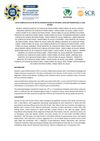
Combining hydroxychloroquine and pimecrolimus can effectively treat hair loss from discoid lupus.
 25 citations,
December 2017 in “Facial Plastic Surgery”
25 citations,
December 2017 in “Facial Plastic Surgery” Combination therapy with steroids and pimecrolimus improved or stabilized hair loss in most patients with Frontal Fibrosing Alopecia, who also had a high rate of hypothyroidism.
 September 2023 in “Clinical, cosmetic and investigational dermatology”
September 2023 in “Clinical, cosmetic and investigational dermatology” A patient with a rare form of lupus improved after treatment for skin ulcers and hair loss on the face and scalp.
January 2018 in “Journal of Investigative Dermatology” Blocking certain pathways with kinase inhibitors may help treat cutaneous lupus erythematosus.
 44 citations,
August 2012 in “Journal of Food Science”
44 citations,
August 2012 in “Journal of Food Science” The best way to extract saponins from Eclipta prostrasta is using 70% ethanol, at 70°C for 3 hours with a 14:1 liquid to solid ratio.
 November 2023 in “International journal of biology, pharmacy and allied sciences”
November 2023 in “International journal of biology, pharmacy and allied sciences” Banana plants have many health benefits, but more research is needed to confirm them.
 January 2012 in “Yearbook of Dermatology and Dermatologic Surgery”
January 2012 in “Yearbook of Dermatology and Dermatologic Surgery” Iron deficiency is not more common in women with hair loss, and neurogenic rosacea may need different treatment.
 53 citations,
May 2010 in “Dermatologic Surgery”
53 citations,
May 2010 in “Dermatologic Surgery” Hair transplantation may not work for Frontal Fibrosing Alopecia as transplanted hair was lost when the disease came back.
 January 2021 in “Türkiye klinikleri dermatoloji dergisi”
January 2021 in “Türkiye klinikleri dermatoloji dergisi” Eyebrow loss in frontal fibrosing alopecia is common and may be linked to other health issues.
 329 citations,
January 1997 in “Journal of the American Academy of Dermatology”
329 citations,
January 1997 in “Journal of the American Academy of Dermatology” Frontal fibrosing alopecia is a hair loss condition in postmenopausal women, similar to lichen planopilaris, with ineffective treatments.

Afro-textured hair is more fragile and prone to certain scalp conditions, requiring careful treatment and more research for effective management.
January 2016 in “Indian dermatology online journal” The patient has frontal fibrosing alopecia (FFA).
A 2-year-old boy with a rare type of lupus causing hair loss improved with oral steroids.
 17 citations,
October 2017 in “Journal of Cutaneous Medicine and Surgery”
17 citations,
October 2017 in “Journal of Cutaneous Medicine and Surgery” No treatment has been proven to effectively stop hair loss or regrow hair in Frontal Fibrosing Alopecia, and more research is needed.
 75 citations,
March 2009 in “Journal of The American Academy of Dermatology”
75 citations,
March 2009 in “Journal of The American Academy of Dermatology” CCCA is a hair loss type affecting African women, possibly caused by grooming and chemicals, with various treatments and needing more research.
 1 citations,
January 2019 in “Acta dermato-venereologica”
1 citations,
January 2019 in “Acta dermato-venereologica” The woman's skin and hair symptoms were confirmed as frontal fibrosing alopecia, and while facial papules are common in such cases, there's no effective local treatment, but systemic treatments can help.
8 citations,
August 2019 in “JAAD case reports” Chronic cutaneous lupus erythematosus causes scarring, hair loss, and skin discoloration, especially on sun-exposed areas.
254 citations,
December 2003 in “Journal of the American Academy of Dermatology” Accurate diagnosis and aggressive treatment are crucial to prevent permanent hair loss in cicatricial alopecia.
1 citations,
April 2024 in “Indian Journal of Pharmacy Practice” Autoimmune skin disorders are caused by genetic and environmental factors and are treated with various medications and preventative strategies.
 18 citations,
August 2012 in “Journal of The American Academy of Dermatology”
18 citations,
August 2012 in “Journal of The American Academy of Dermatology” Estrogen therapy helped regrow hair in a bald man.
 32 citations,
December 2018 in “Cytokine”
32 citations,
December 2018 in “Cytokine” Type I interferons play a key role in the development of various skin diseases.
 August 2019 in “Blucher Medical Proceedings”
August 2019 in “Blucher Medical Proceedings” Lupus Panniculitis can be an early sign of Systemic Lupus Erythematosus.
 April 2021 in “BMJ Case Reports”
April 2021 in “BMJ Case Reports” Accurate diagnosis of pseudolymphomatous folliculitis is crucial to avoid mistaking it for more serious conditions.
16 citations,
April 2016 in “Medicine” Early treatment and regular check-ups are crucial for lupus patients to prevent progression and improve outcomes.
 7 citations,
December 2021 in “Curēus”
7 citations,
December 2021 in “Curēus” Breast cancer skin metastases are rare, look different, and can be confused with other skin issues, so a biopsy is needed for accurate diagnosis.
 19 citations,
June 2009 in “Seminars in cutaneous medicine and surgery”
19 citations,
June 2009 in “Seminars in cutaneous medicine and surgery” Proper education can prevent traction alopecia in women of color.
13 citations,
January 2018 in “International Journal of Trichology” Intralesional triamcinolone injections can effectively stop frontal fibrosing alopecia with minimal side effects.
 2 citations,
July 2013 in “InTech eBooks”
2 citations,
July 2013 in “InTech eBooks” Scalp biopsy helps tell apart permanent and temporary hair loss types and guides treatment.
 7 citations,
July 2019 in “Clinics in Dermatology”
7 citations,
July 2019 in “Clinics in Dermatology” Hair loss can indicate or worsen with systemic diseases, and treating the underlying condition is important.
 July 2023 in “International Journal of Endocrinology”
July 2023 in “International Journal of Endocrinology” Centratherum anthelminticum seed extract effectively treats Polycystic Ovary Syndrome in rats.






















